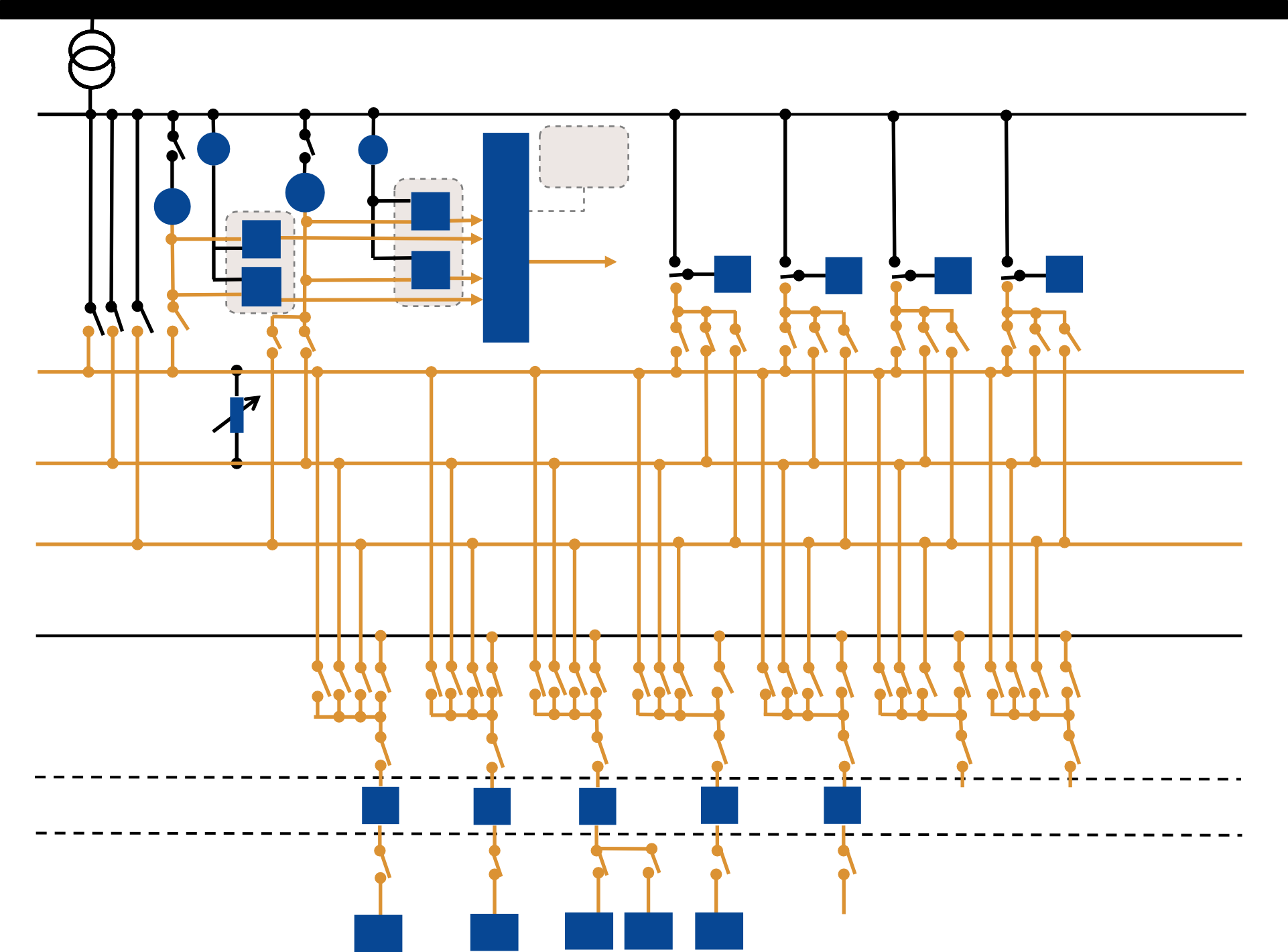Smart Grid Laboratory deals with the modeling and simulation of electrical power distribution systems involving various “green” energy sources. The main focus is on developing advanced energy systems, including connection to a photovoltaic system. The laboratory also has precise measuring devices that allow detailed analysis of the voltage and current signal on the supply wires to the connected production equipment. Thanks to this option, we can monitor energy requirements for individual production operations and optimize production processes concerning available energy sources. We also get the opportunity to evaluate the influence of individual production equipment on the quality of the electrical signal in the local electrical network. In combination with simulation tools, we can detect possible future problems by ensuring the stability of the power supply of all connected components, even at the design stage of a new production system. It will make it possible to simulate loads, wiring, and interconnection of various sources, from photovoltaic panels, through battery storage to separate turbines in the function of a generator. The individual sources are interconnected at the level of the alternating current network, as it corresponds to the real conditions in the distribution network. A big advantage will be the connection of real machines from both parts of the Testbed, as well as the connection of some systems in the CTU building (for example, air conditioning and heating).
Retrofitting of electric car batteries in different conditions is one of the latest projects that has been developed within an IPCEI framework with Slovak partners. Currently, the recycling of car batteries consists in obtaining the basic material, which can be iron, manganese, or zinc, and is further used, for example, in the steel industry. Whereas the smart retrofitting of car batteries is based on automated operations that comprise testing, dissembling, revitalizing, and meaningful re-use of the batteries or their parts in further production. All of this with minimal human involvement with robotics and machine learning algorithms. Thanks to retrofitting, i.e., the regeneration of batteries from electric cars, already-used batteries get a second life and can serve well in places where their lower capacity is not a serious problem. The project applies Industry 4.0 principles and is conceptually based on distributed flexible production.
